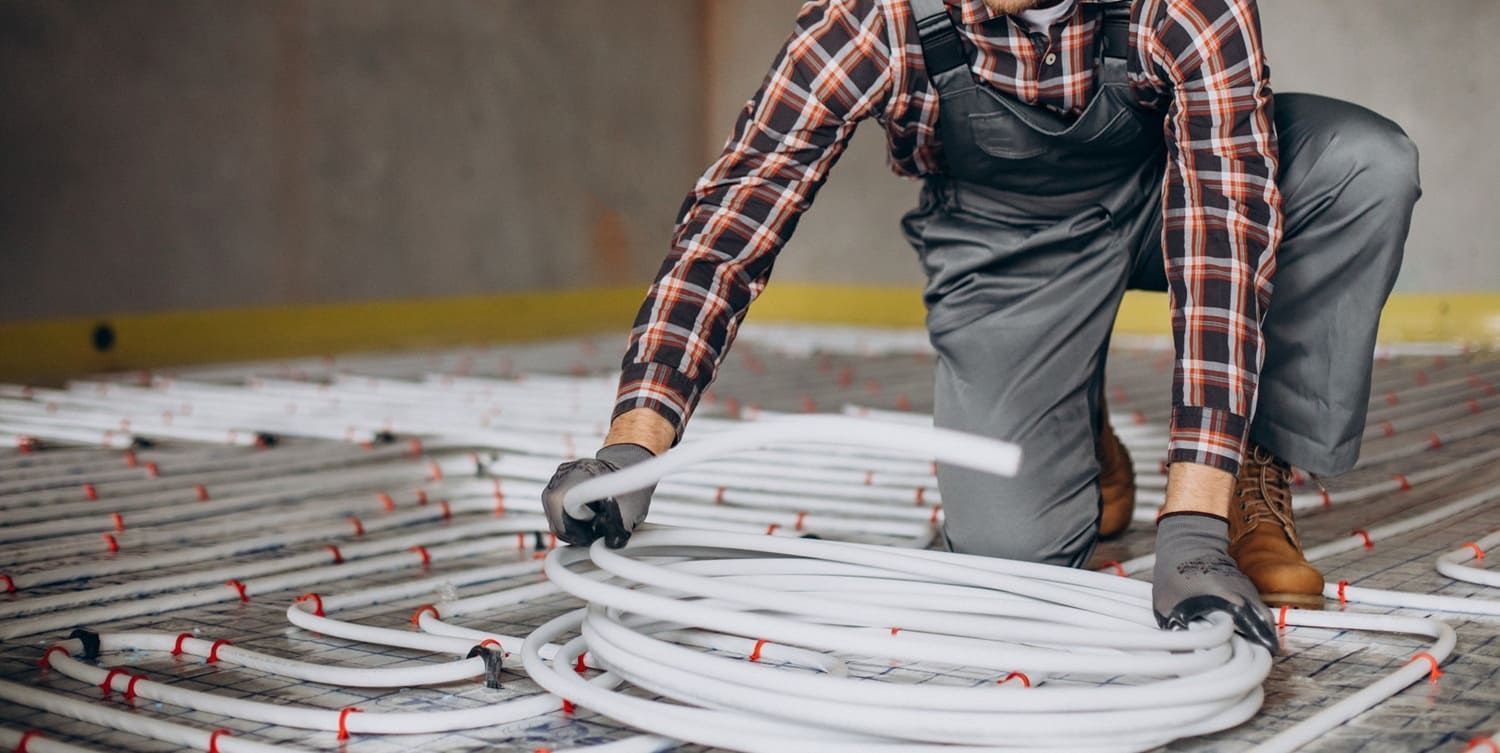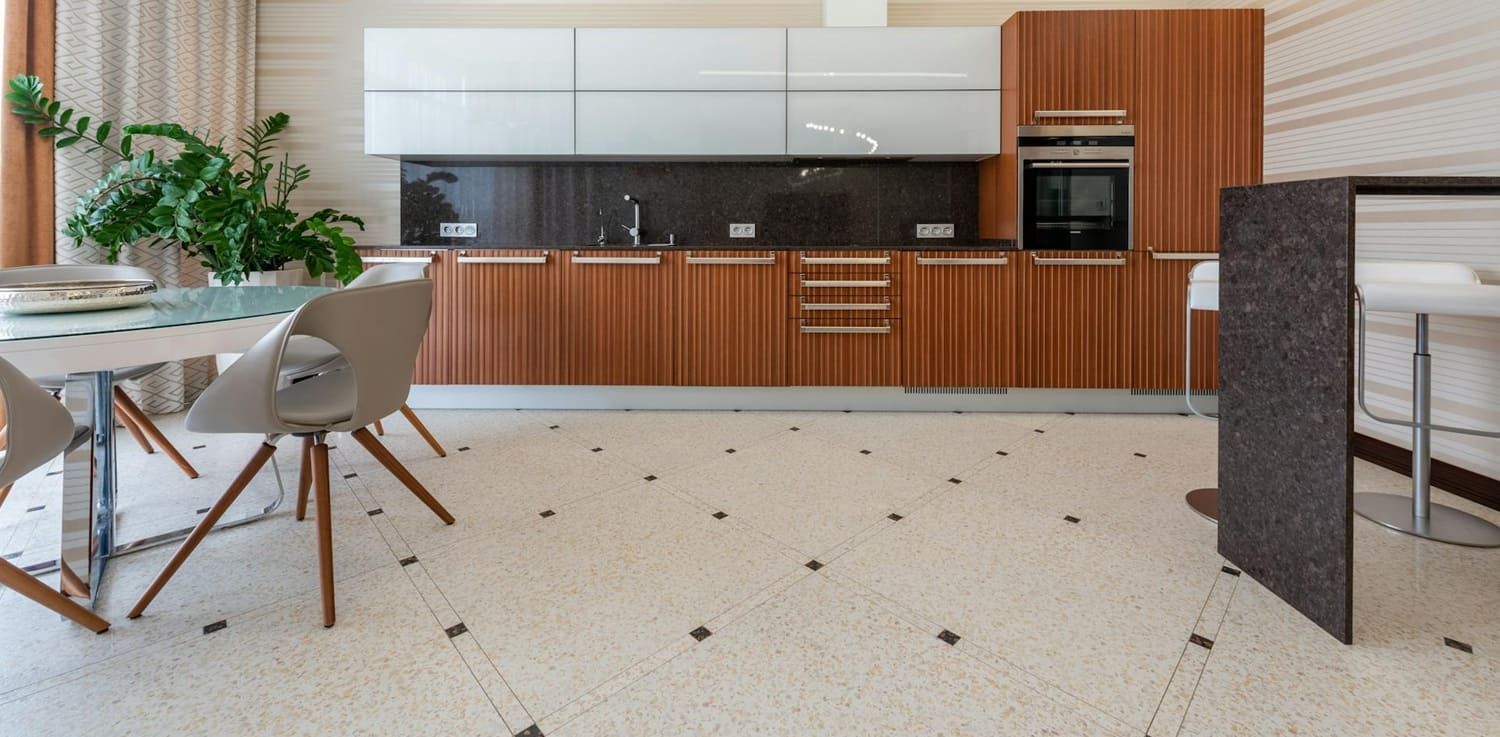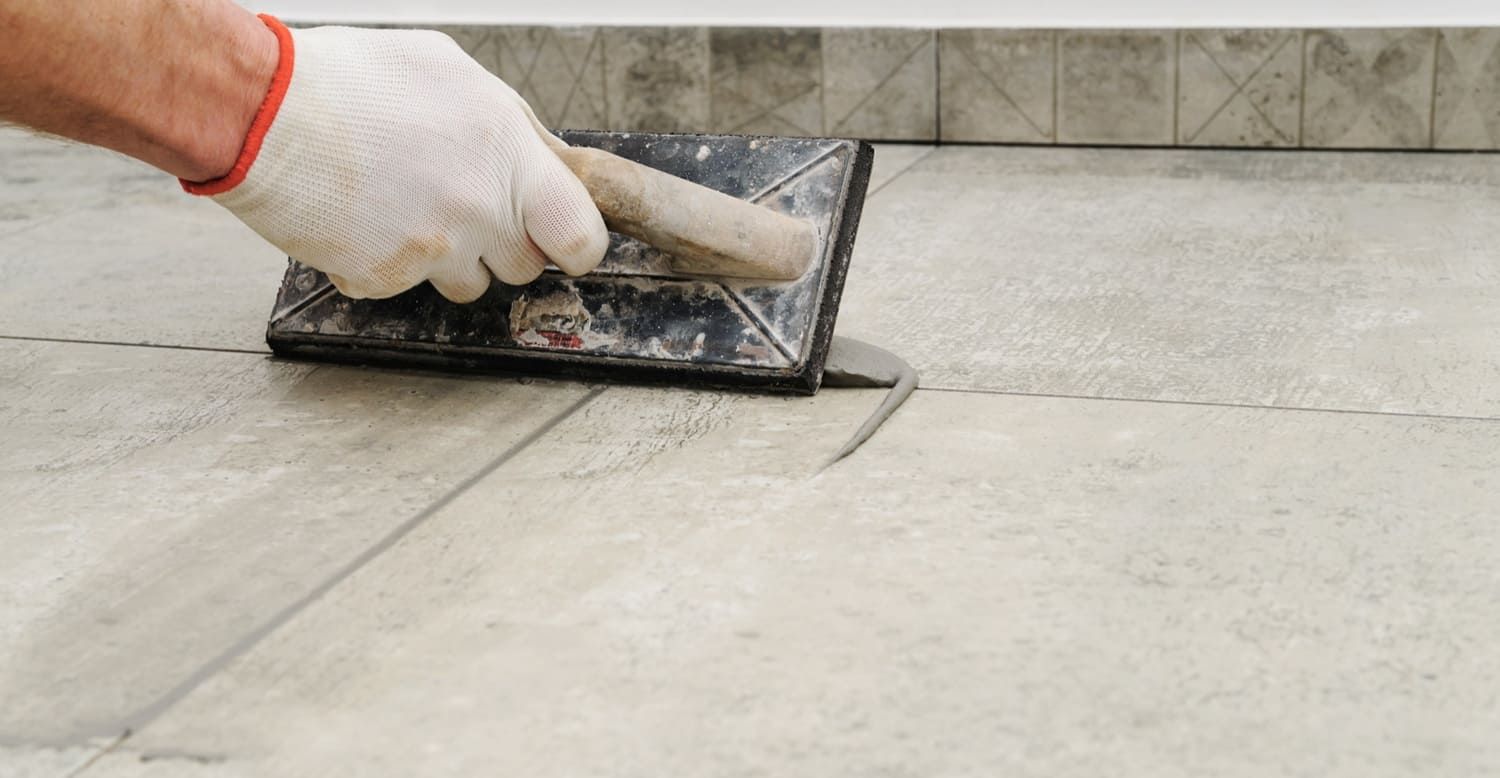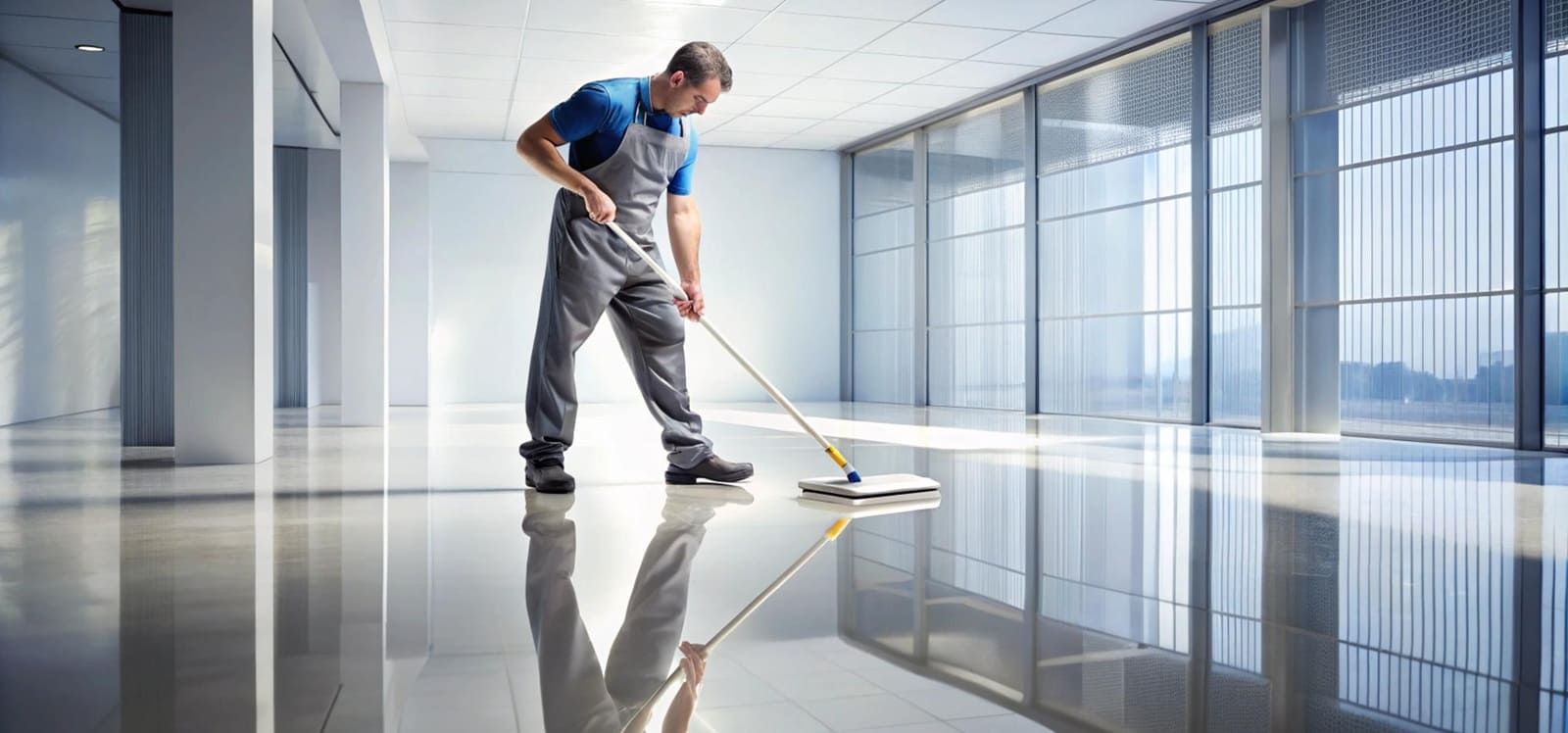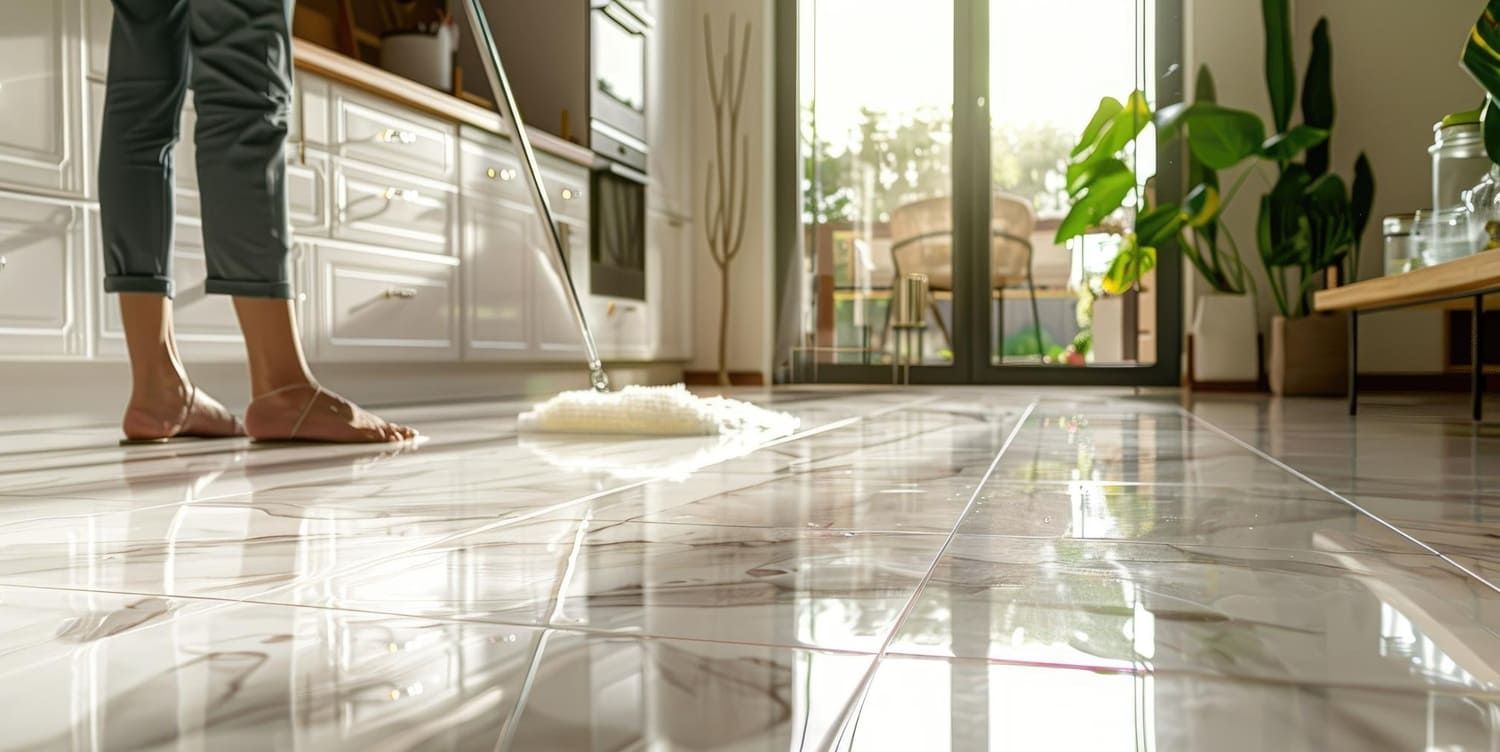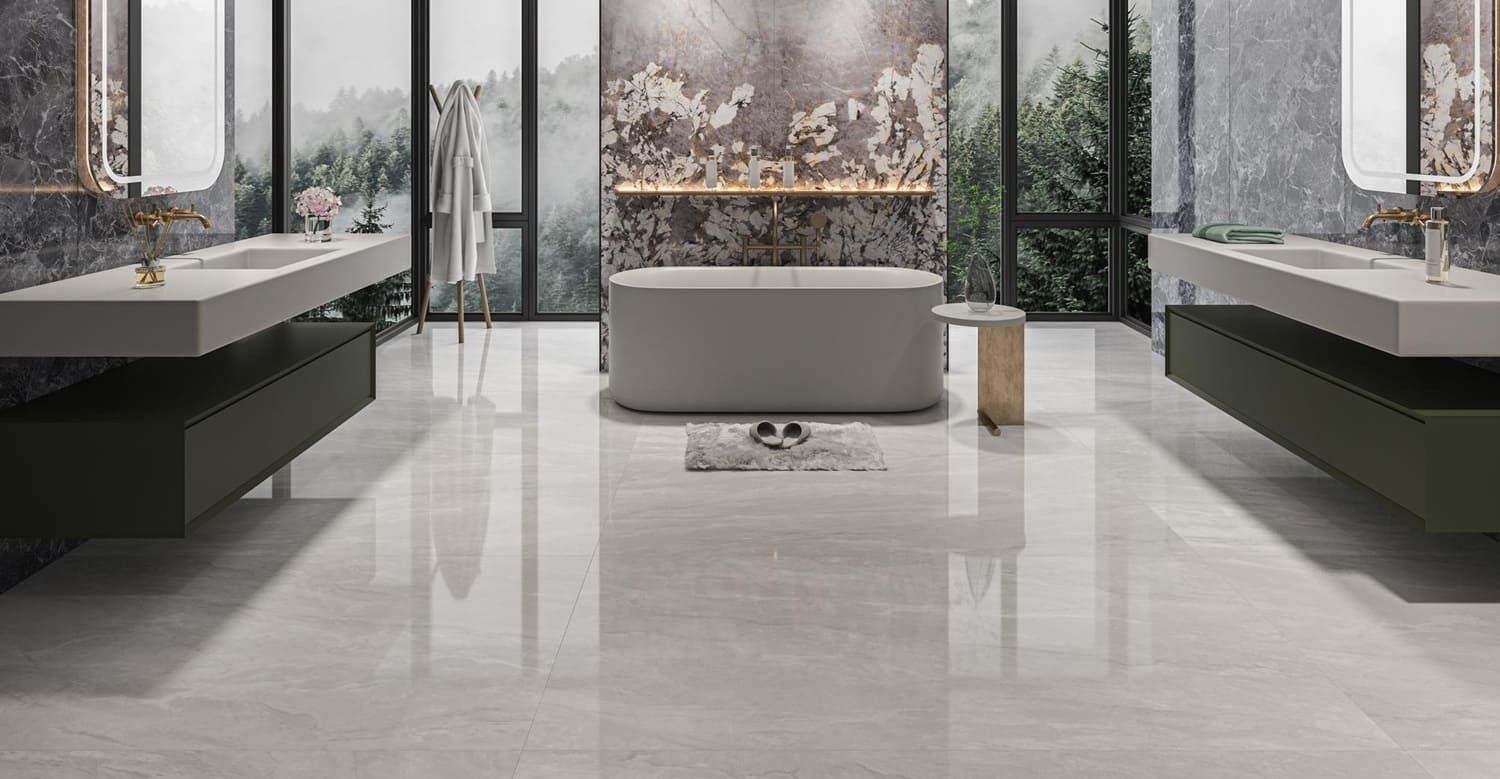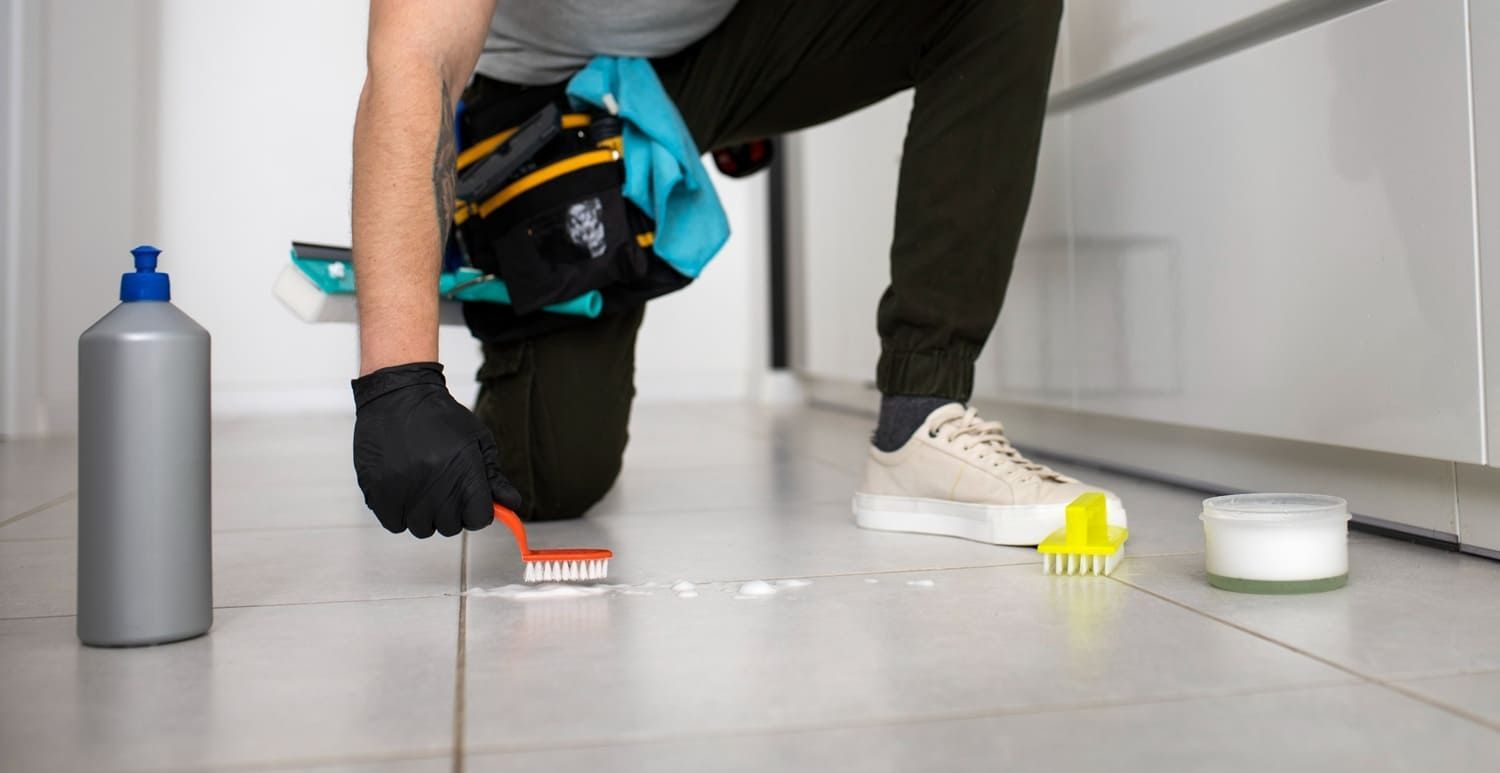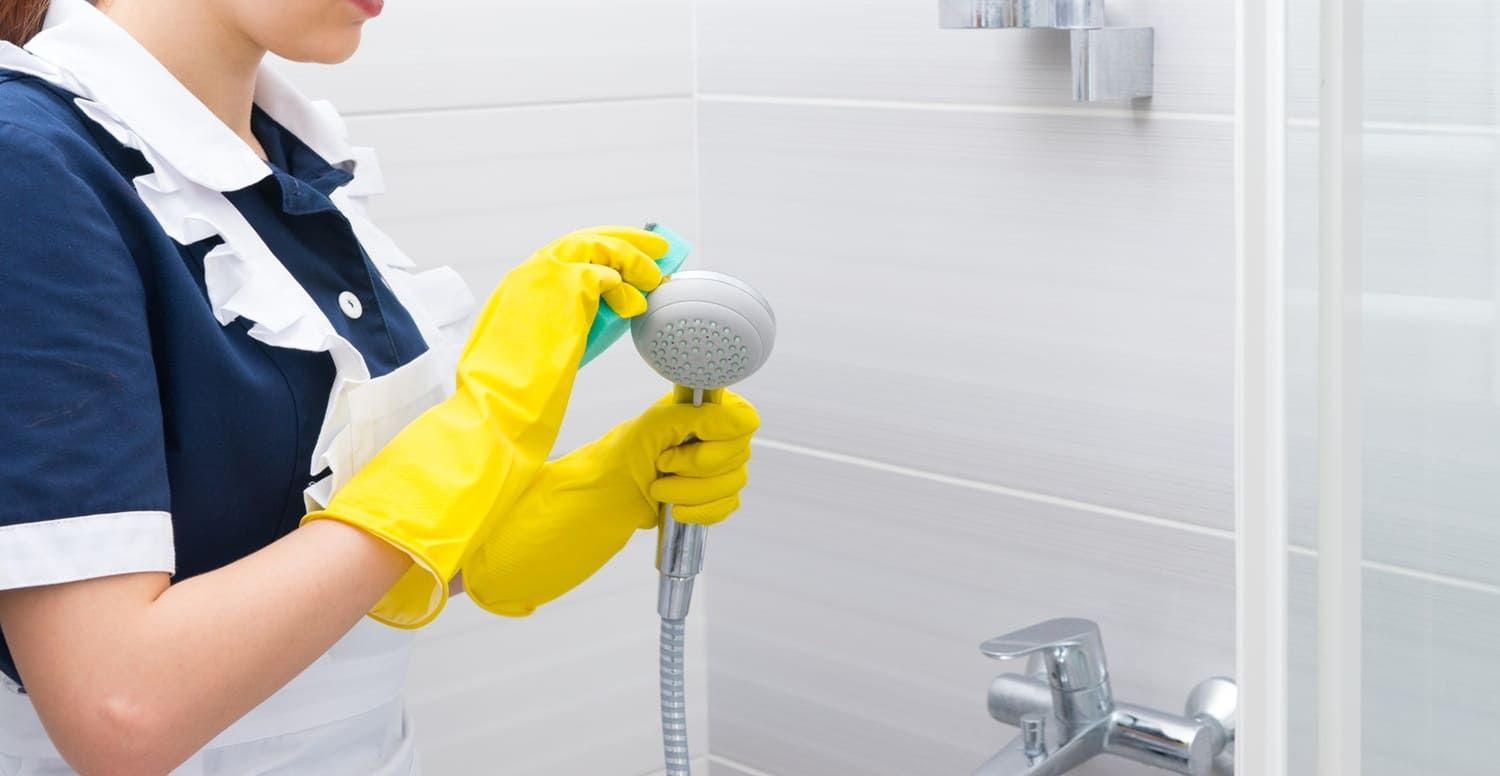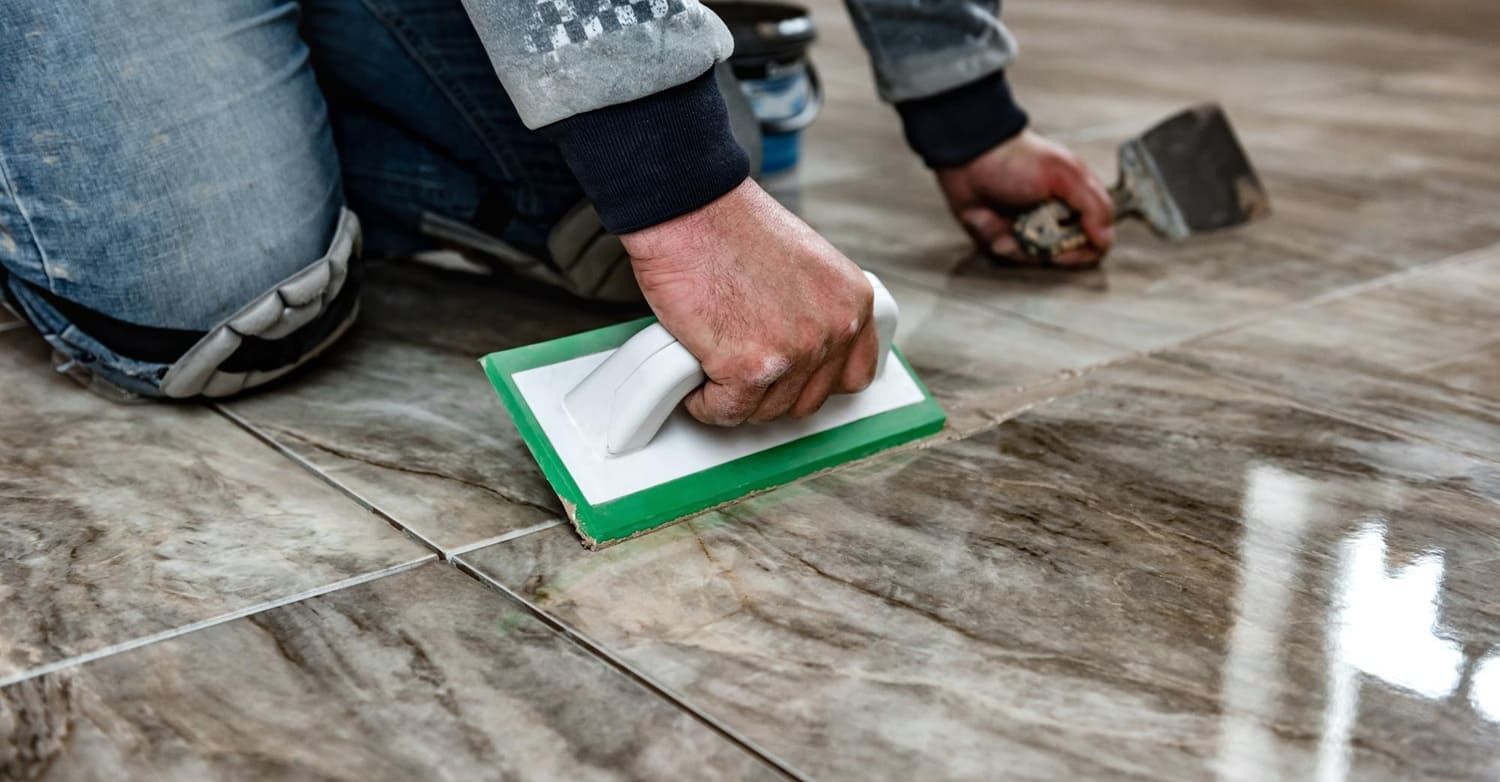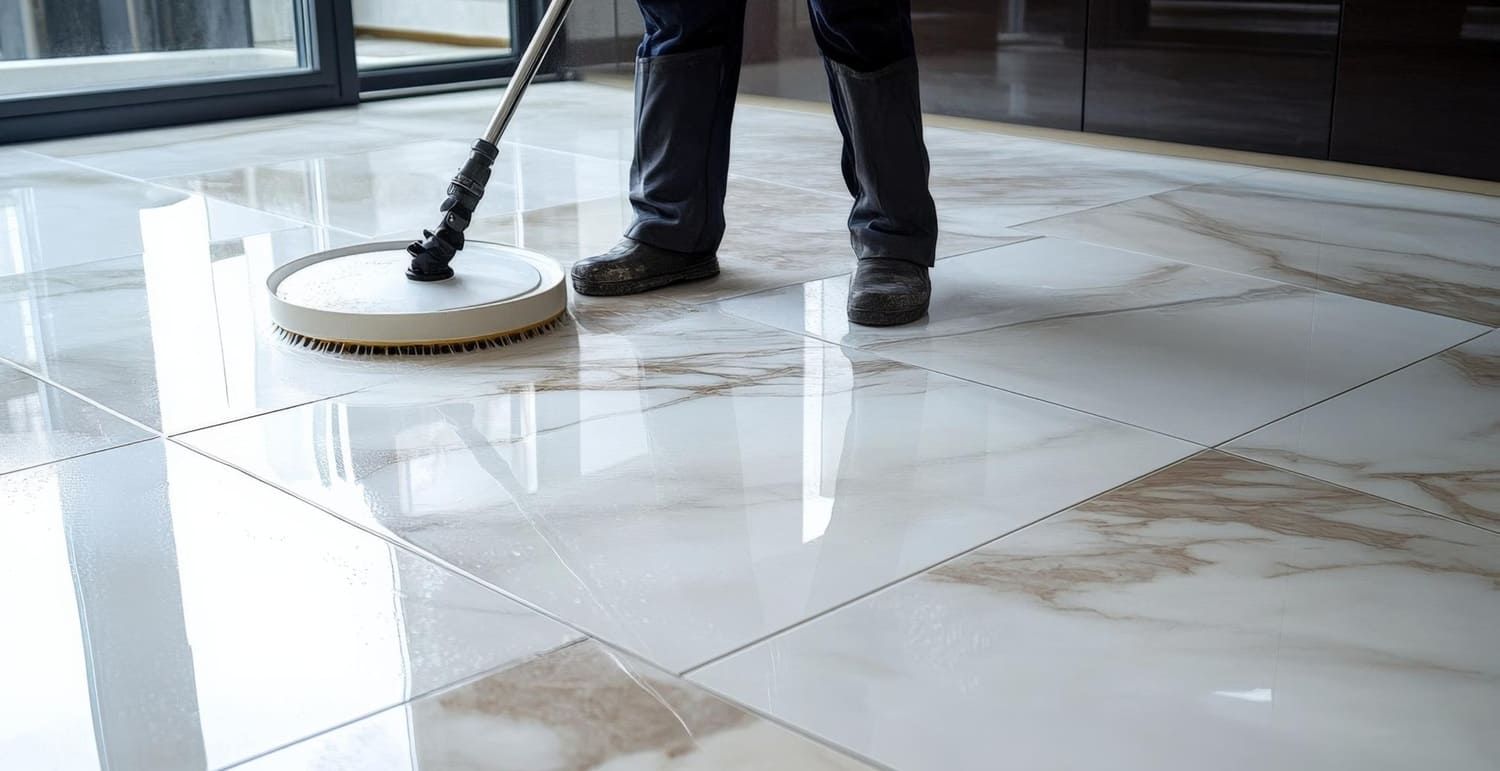How to Care for the Different Types of Floor Tiles
Properly caring for your floor tiles is essential for ensuring they look amazing for years to come. Learn how to care for different types of floor tiles here.

Tile flooring is a popular choice for homeowners because it is durable, easy to clean, and versatile. If you have floor tiles in your home, you may be wondering how to maintain and clean them to make sure they last long and look great.
There are many different types of floor tiles, meaning there is no one size fits all answer for how to best maintain your flooring. That's why we've compiled this list of how to deep clean tiles of all materials, so keep reading to learn more!
Granite
Granite is one of the most popular tile materials and is especially good for kitchens and bathrooms due to its more waterproof nature. To deep clean your granite tiles, we recommend using Advanced Ultimate Granite Clean and Seal.
One of the advantages of this product is that it re-seals the granite every time you use it. Although granite is not as porous as other stones, such as marble, some substances can still seep through, so this extra re-sealing will help keep your granite floors as clean as possible.
With granite, it is important not to use other cleaning materials such as bleach, vinegar, or glass cleaner. Repeated use of these products will dull your floors. To clean, spray the Clean and Seal over a section of your floor and then go over it with a damp mop. Repeat as often as needed for beautiful granite floors.
Marble
Marble tiling is a stunning choice for any home and can make any space more elegant. However, marble can be porous, so you have to take care to avoid spills as much as possible with these floors. They can be regularly maintained by using a dust mop with no chemicals to clean away the dust and grime.
If you do have a spill on your marble floors, you will want to clean it up right away to avoid damage. It is essential that you gently blot up the liquid rather than wiping it away, as this will damage the floors. If stains remain, you can clean them with a small amount of dish soap and warm water.
Ceramic
Ceramic is one of the more affordable choices for home tiles, and they are also durable and easy to clean, making them a popular choice. Sweeping and/or vacuuming at least once a week is the best way to keep dust and grit off your floors.
When you're ready to deep clean your tiles, you will want to use mild dish soap and warm water to mop your floors. Be sure not to use a sponge mop, as this will only push all of the dirt into the grout. It is also important to clean up spills quickly to avoid any stains.
You should also have your grout sealed when installing your floors, and it should be re-sealed 1-2 times per year to avoid messy buildup. We recommend using Advanced Ultimate Fast Grout Seal, which you should spray on top of grout after it is applied. This product will protect your grout from stains and discoloration.
Porcelain
Porcelain tiles are very similar to ceramic tiles, but they are heavier and denser. They are also very durable and resistant to most stains. However, it is always a good idea to clean up messes before any permanent stains develop. You can clean them with a gentle cleaner and warm water as well.
Again, it is recommended that you seal your grout to avoid stains and the accumulation of dust and grime. If you need to deep clean your grout, the best way to do so is with a mixture of baking soda and vinegar and a stiff brush. This solution works for ceramic and porcelain floors alike.
Cement
While less common, cement tiles come in a beautiful array of colors and patterns. However, they require more maintenance than other types of tile flooring. They should be refinished regularly in order to look their best, but are easy to clean.
Like other materials, cement is porous, so it is best to clean up any spills immediately because even water can stain if it is left sitting for too long. They can be cleaned with a gentle cleaner and warm water, and daily sweeping can get rid of dust and dirt. Be sure to never use acid-based cleaning products on cement, as they can damage the floor.
Travertine
Travertine is another natural stone choice that comes in beautiful beige and gray tones. It is important to sweep or vacuum your travertine tiles regularly, or small particles can accumulate and do damage to your floor over time.
Like other stone surfaces, you should mop them using a gentle, pH-neutral cleaner that will not damage the surface. Travertine flooring should also be sealed at installation and every three to five years, depending on how much traffic or spills it receives.
Quarry
Quarry tile is unique in that it is much less porous and more water-resistant than many other tile surfaces, so it does not require sealing. However, the drawback to quarry tiles is that they do stain easily, so any stains should be cleaned up as quickly as possible.
Another advantage to quarry is that it is naturally non-slip, making it a great flooring option. To clean it, mop with soap and water, and scrub grout lines as needed. Note that while quarry tile doesn't need to be sealed, sealing it before applying grout will improve the durability of the floor, and as always, grout should be sealed regularly.
Final Thoughts on Cleaning Your Floor Tiles
Now that you are armed with these tile maintenance tips, you are ready to keep your floor tiles in tip-top shape! This will help them look nice and last longer.
If you are looking for a gentle, pH-neutral soap to clean your tile floors with, Advanced Ultimate Floor & More is a great way to go! You can use it to clean your floors or you can use a concentrated mixture to scrub grout. Be sure to check out this and all of our top-of-the-line cleaning products at
ADVANCED Sealers and Cleaners!



